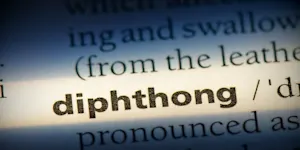What Makes This Word Tick
"Gullible" describes a person who's surprisingly easy to fool. It's not just a word; it’s a badge that someone unwittingly wears, announcing to the world that they've been hoodwinked or are prone to being so. Whether it’s a well-spun tale or a too-good-to-be-true promise, those who are gullible often fall for it hook, line, and sinker.
If Gullible Were a Person…
Imagine someone with wide eyes and an open heart, walking through the world with trust as their guiding light. Gullible might naively believe that the moon is made of cheese if told so convincingly. They'd nod along at a tall tale, their skepticism nowhere to be found. Clutching their unsolicited lottery winnings letter, they're the eternal optimist, perhaps a bit too optimistic.
How This Word Has Changed Over Time
While "gullible" itself hasn’t changed much since it started appearing in the English language in the early 19th century, the concept has evolved dramatically. In the age of the internet, gullibility is explored in viral pranks, clickbait headlines, and ever-persistent scams. The digital era may make it easier to prey on the gullible, but it also offers them tools to educate and guard themselves.
Old Sayings and Proverbs That Use Gullible
Though you won't spot "gullible" etched into the bones of ancient proverbs, the notion is embedded in expressions like, "There's a sucker born every minute," credited to P.T. Barnum, or "Fool me once, shame on you; fool me twice, shame on me," highlighting the shared wisdom regarding deception and trust.
Surprising Facts About Gullible
Did you know that a famous faux-fact claims "gullible" isn't in the dictionary? It’s been used as a classic joke to trick the unsuspecting. Also, humans aren't the only ones who can be gullible; animals might be fooled by camouflage or trickster predators. It's fascinating how deeply rooted the concept of being gullible is, spanning species and cultures.
Out and About With This Word
In day-to-day life, "gullible" comes up often enough where the stakes are personal. Whether discussing online hoaxes, tricky sales tactics, or dubious news, it’s a word that gently (or not so gently) reminds us to keep our wits about us. Being labeled gullible might sting, but it also encourages a healthy bit of skepticism.
Pop Culture Moments Where Gullible Was Used
Remember those sitcoms where someone is tricked into believing something ridiculous? That's gullibility showcased for laughs. Shows like "I Love Lucy" often played on gullible characters to drive comedic situations, where loveable characters might believe the most outlandish things—much to the audience's delight.
The Word in Literature
While "gullible" itself might not be the main character in classic literature, its essence can be found in novels featuring protagonists with a trusting nature who are deceived. Consider Austen's "Northanger Abbey," where Catherine Morland’s gullibility about gothic horrors serves as a central theme.
Moments in History with Gullible
The infamous Piltdown Man hoax in the early 20th century is a classic history lesson in gullibility. Scientists were duped into believing they had found the "missing link" in human evolution, a fraud that persisted for over 40 years before it was debunked. A sobering reminder that even experts can be misled.
This Word Around the World
In Russia, someone might be called "доверчивый" (doverchivy), translating to "trusting" or "naïve," capturing a similar sentiment to gullibility. Across cultures, trust and deception play universal roles, though societal norms dictate how gullibility is viewed or described.
Where Does It Come From?
"Gullible" comes from the older, now mostly obsolete verb "gull," which meant to deceive or trick. "Gull" itself likely finds its roots with old words meaning to swallow or cheat—a fitting imagery for someone who swallows a story without question.
How People Misuse This Word
It's easy to misuse "gullible" when describing someone who's merely kind-hearted or inclined to see the best in people. There's a fine line between being trusting and gullible—trust suggests a choice, whereas gullibility hints at an involuntary innocence.
Words It’s Often Confused With
Naïve: Though both imply innocence, naïve suggests a lack of worldly experience rather than falling prey to deceit.
Credulous: This is a near synonym, also implying a readiness to believe, but is less commonly used in everyday conversation.
Trustful: Sometimes confused but carries a more positive connotation than gullible, implying a conscious choice to trust.
Additional Synonyms and Antonyms
Synonyms include credulous, unsuspecting, and believing, while antonyms are skeptical, suspicious, and incredulous. These words span the range from seeing the best in situations to doubting everything.
Want to Try It Out in a Sentence?
“She was so gullible that she once believed there was a portal to the North Pole hiding in her closet.” This sentence shows how easily the fictional magic could mesh with a believable story for someone trusting.
















